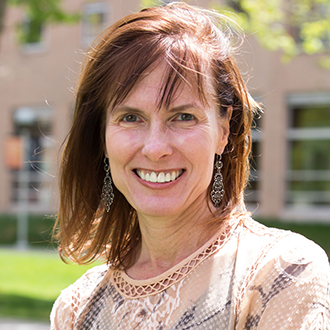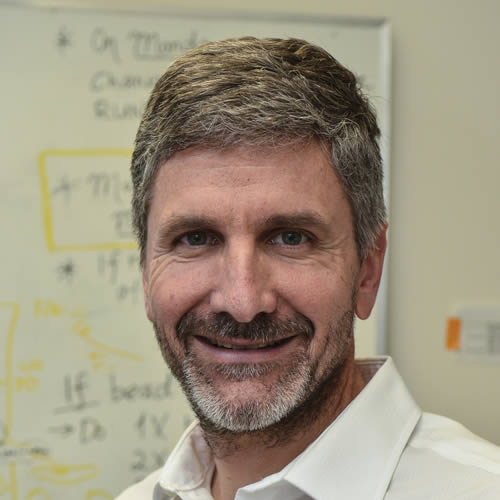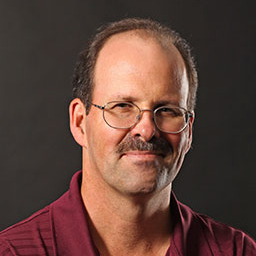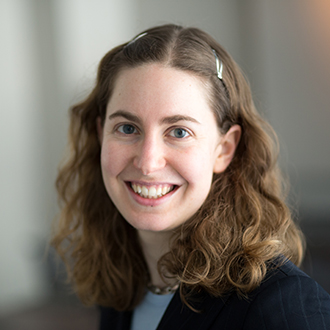In research that reinforces the University of Colorado Cancer Center’s longstanding relationship with the Leukemia & Lymphoma Society (LLS), CU Cancer Center member Lauren Nicholas, PhD, MPP, is co-principal investigator on a new LLS-funded study to examine the role of Medicare plan selection in dealing with a blood cancer diagnosis.
“We are specifically focused on those who choose to receive their care through a Medicare Advantage managed care plan,” Nicholas says. “Those have been available in Medicare for a long time, but they've been really growing in popularity recently.”
Medicare Advantage plans are typically lower-cost options that can reduce monthly premiums or provide supplemental benefits that aren't available through traditional Medicare, Nicholas says, but they also put users into a managed care plan with a specific network of providers and rules on how they can and can't access certain types of care and medications. When patients receive a cancer diagnosis, they often need to switch to a more expensive Medicare plan to effectively manage their care and treatment.
Impacts on care and spending
Using data from the University of Michigan Health and Retirement Study 2008–18, Nicholas and principal investigator Stacie Dusetzina, PhD, associate professor of health policy and Ingram Associate Professor of Cancer Research at the Vanderbilt University School of Medicine, are looking to better understand how initial selection of Medicare coverage when one becomes eligible for the insurance impacts their care and spending after receiving a cancer diagnosis. The researchers are interested in whether minority Medicare beneficiaries and those with lower socioeconomic status choose plans that provide adequate coverage for their health needs and how a new cancer diagnosis impacts changes in insurance type and financial well-being.
“We want to understand what this initial choice at age 65 could mean for patients,” Nicholas says. “That can yield either recommendations that help individuals choose the right Medicare coverage option for them, or it could reveal problems that policymakers should really think about adjusting.”
Longtime relationship
Nicholas’ Equity in Access Research Grant is among the latest funding the LLS has given to projects at the CU Cancer Center. It’s a relationship that goes back decades.
James DeGregori, PhD, deputy director of the CU Cancer Center, has received several grants from the LLS over the years, many of them focused on translational research that directly impacts the health of patients.
The LLS funded DeGregori as a scholar when he first started his lab, enabling his first forays into leukemia research. Later, the LLS awarded DeGregori a Translational Research Program (TRP) grant that led to the discovery of a new pathway that keeps chronic myeloid leukemia cells alive despite treatment with a targeted drug. This research led to a new combination therapy that was tested in a clinical trial.
DeGregori’s lab also received another TRP grant from the LLS to fund similar studies for acute myeloid leukemia (AML), with the goal of developing novel combination therapies to better treat this devastating disease. DeGregori has worked closely with the LLS for years, not just as a grant recipient, but helping with outreach, giving lab tours, and participating in fundraising efforts including cycling events and marathons.
“It’s a great organization, and that’s why many of us at the CU Cancer Center are so dedicated to the LLS,” DeGregori says. “It’s not just that we get money from them, but we believe in their mission.”
SCOR!
DeGregori is also part of the CU Cancer Center’s Specialized Center of Research (SCOR) grant from the LLS. The SCOR program funds teams of researchers engaged in collaborative efforts to discover new approaches to treat patients with blood cancers. The CU Cancer Center SCOR team, overseen by CU Cancer Center member Craig Jordan, PhD, seeks to fundamentally reinvent the ways in which physicians diagnose and treat AML.
“For over 40 years, AML has been treated with a combination of chemotherapy drugs that have major side effects and usually only provide short-term benefit to patients,” Jordan says. “Survival rates for most AML patients are dismal, and quality of life for these patients is poor. Consequently, improved strategies for AML are a huge priority for the field.”
Jordan and his team are creating therapies that broadly attack AML stem cells, including their ability to produce energy. One initiative leverages the emerging field of immunotherapy by designing new strategies to teach T cells from an AML patient to specifically target AML stem cells, while another, overseen by DeGregori, looks at how surrounding tissues influence the growth and survival of AML stem cells and aims to create a tissue ecosystem in which healthy stem cells are able to out-compete their AML rivals.
The team hopes the SCOR grant will eventually lead to clinical trials, overseen by CU Cancer Center member Dan Pollyea, MD, MS, for a drug that attacks AML stem cells.
Additionally, CU Cancer Center member Clay Smith, MD, recently received an LLS IMPACT Award to improve access and enrollment in blood cancer clinical trials in underserved rural communities in Colorado.
“We’re starting in the Front Range, and hopefully we can build up infrastructure and processes,” Smith says. “Our ultimate goal is to extend this throughout western Colorado and the whole Rocky Mountain region.”
The initiative includes training nurse navigators to help conduct clinical trials, and to provide education around clinical trials and their benefits to rural populations that tend to distrust health care providers. Smith is especially excited about a virtual component that uses new technology to make clinical trials more accessible.
“I’m really interested in how we take some of this very cool emerging technology around digital health and virtual care and start applying that across more distributed geographies,” he says. “That way, people can participate in clinical trials, but they can get their blood drawn at home, have their vital signs done at home, instead of having to go to the trial site over and over.”
“Absolutely essential”
Smith, whose relationship with the LLS includes multiple grants and participating in many fundraising events, says the organization — which has been around since 1949 — has become an invaluable resource for researchers as well as patients.
“I think LLS has become an absolutely essential part of the treatment of blood cancers,” he says. “They are as important as the pharmacy and the hospital and the clinic.”
That’s because of the organization’s wide-ranging focus on basic, translational, and population research, he says as well as bringing researchers together around common goals and doing a superlative job educating patients on their diseases.
“They think people will do better when they know more about their disease, so they have by far the best website; it's where I direct every patient I ever see,” Smith says. “They also are committed to helping patients to find resources, like clinical trials and other resources they may need.”
CU Cancer Center Deputy Director Cathy Bradley, PhD, says the center’s longstanding relationship with the LLS has advanced much of what its members know about the treatment of blood cancers.
“With the addition of the newly awarded grant to Dr. Nicholas,” she says, “our researchers can now inform treatment from the basic, translational, and policy levels to ensure that patients get the very best possible care and that disparities in access are eliminated.”








